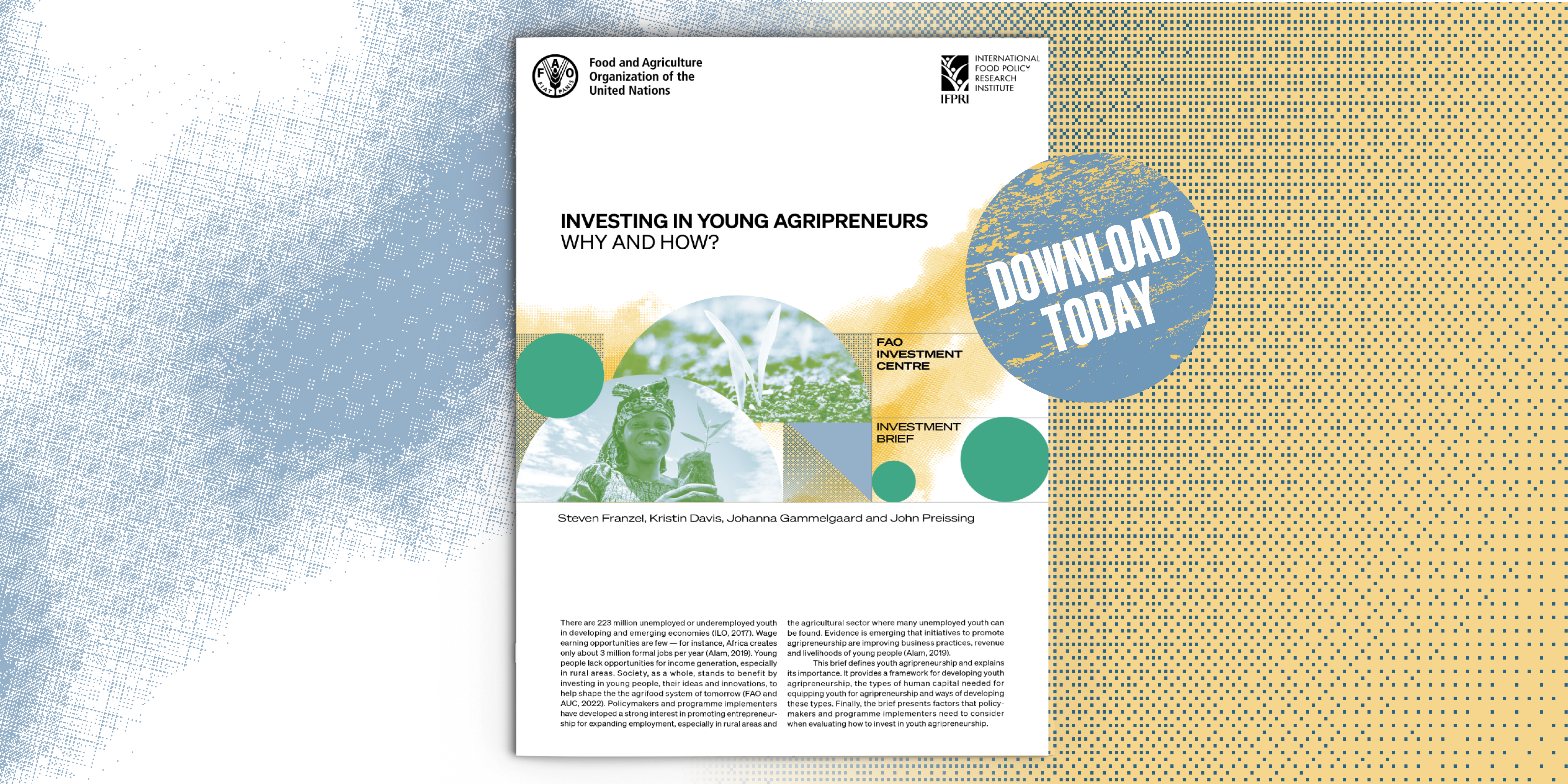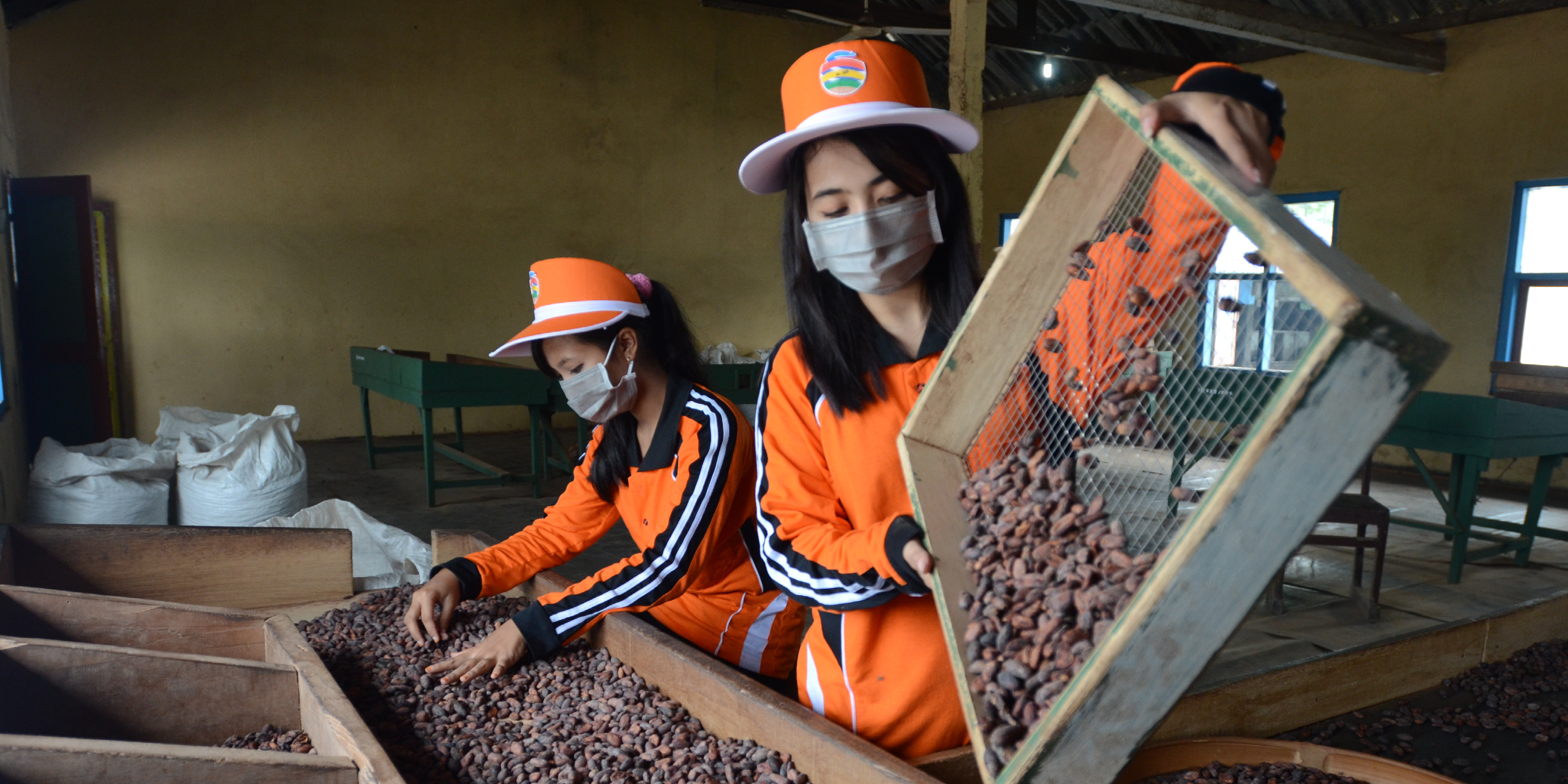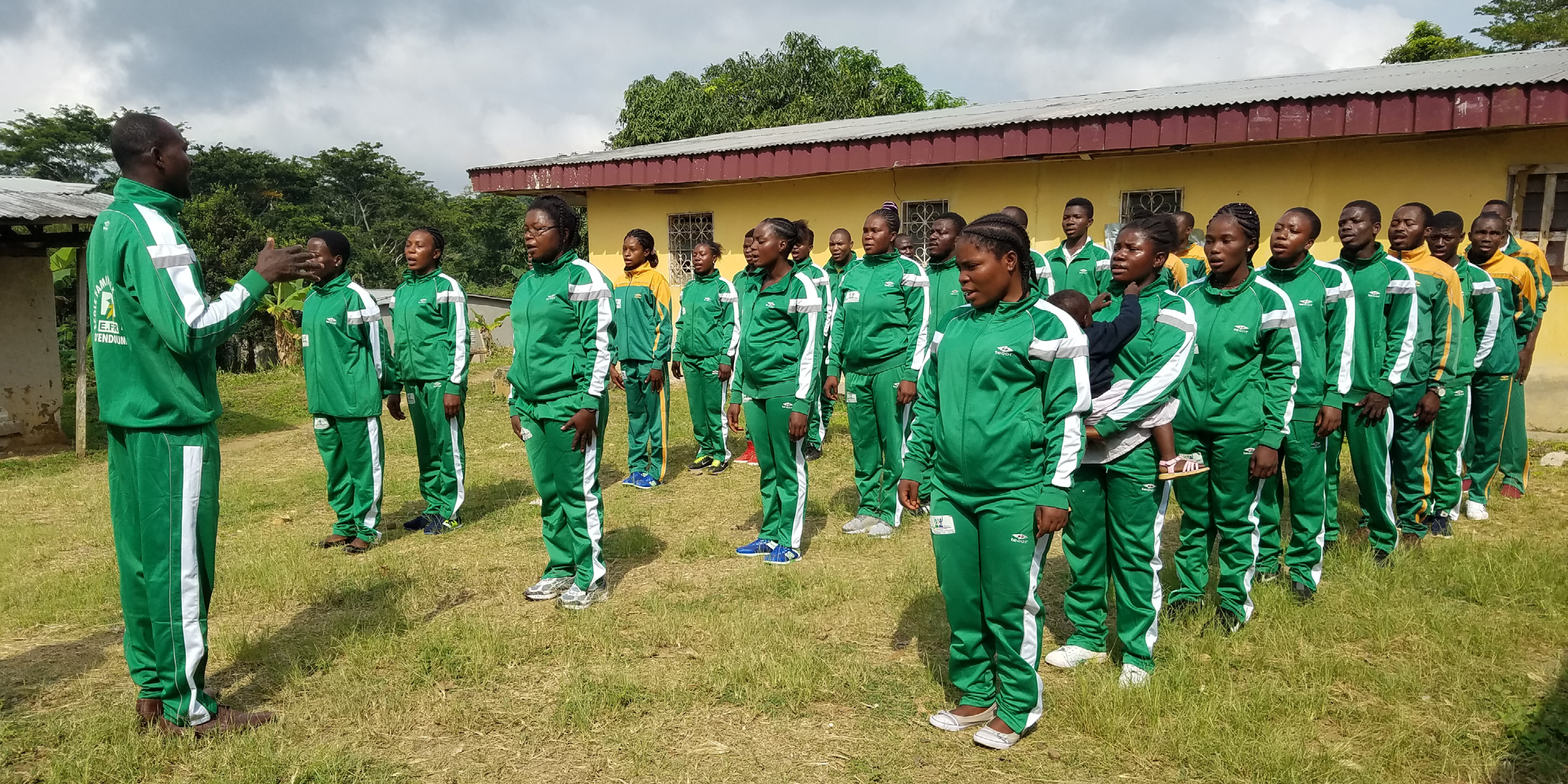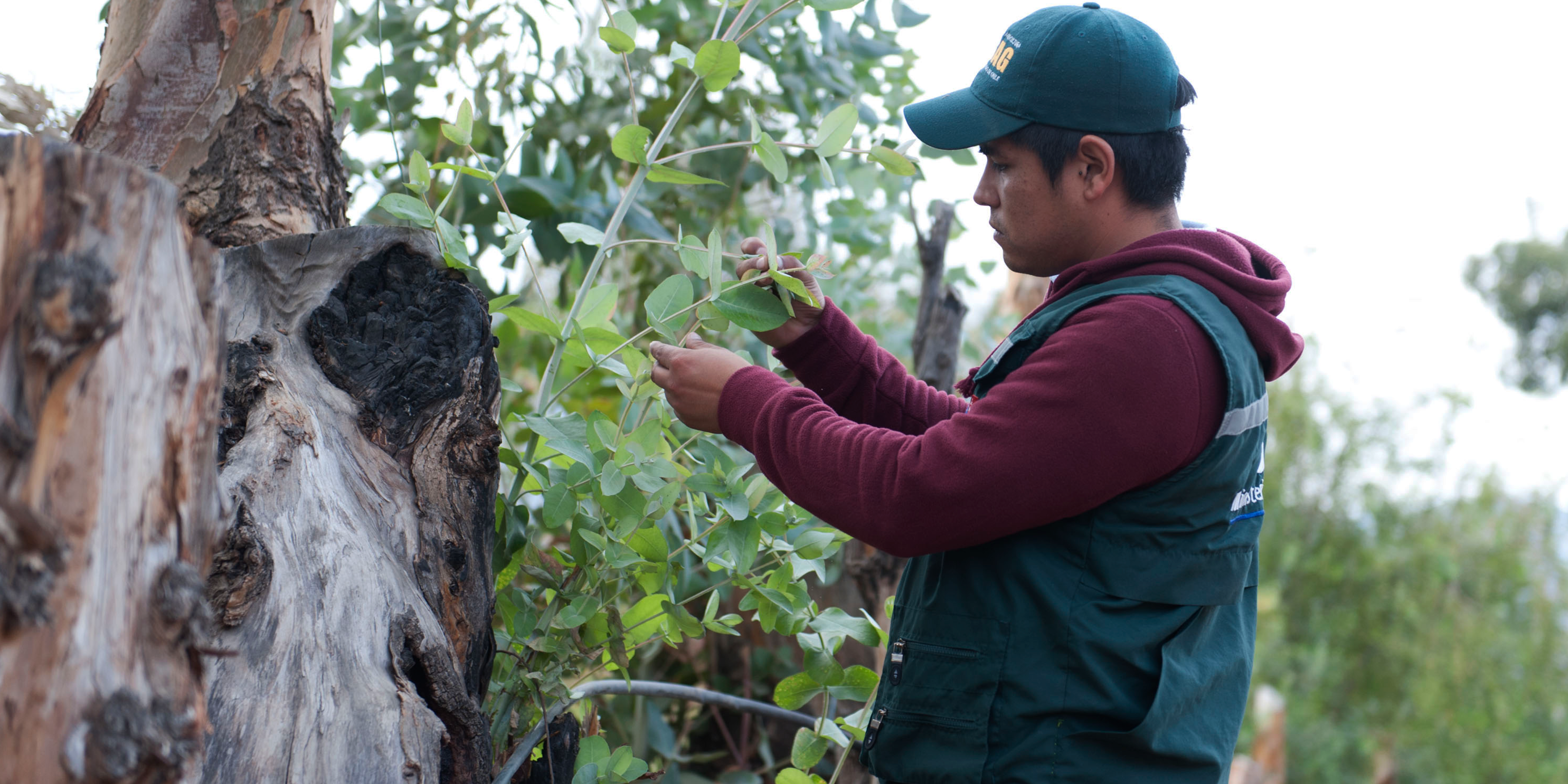Unleashing the power of young agripreneurs

Investing in young agripreneurs can help unlock potential within more than 223 million unemployed or underemployed youth in developing and emerging economies – but they need sustained and targeted support, finds a new brief from the Food and Agriculture Organization of the United Nations (FAO) Investment Centre and the International Food Policy Research Institute (IFPRI).
Findings show that – with the right tools, skills and opportunities – young agripreneurs can significantly improve their livelihoods and incomes.
Moreover, they can ignite a catalytic effect, expanding economic opportunities within their communities and bringing high returns on investment.
The brief will assist policymakers and investors looking to support and nurture young agripreneurs. It pinpoints how to develop the skills, mindsets and conditions needed to equip youth for agripreneurship, which can help to ensure investments are successful and sustainable.
“In sub-Saharan Africa alone, up to half the population is under the age of 25. It is vital that investment is mobilized to empower youth to grow sustainable, job-creating agribusinesses, providing vital sources of employment and self-employment,” said Kristin Davis, Senior Research Fellow, IFPRI, one of the co-authors of the brief. “The right investments can transform the perceptions and prospects of young men and women from redundancy to agripreneurship.”

Overcoming barriers
Developing agripreneurs – rural entrepreneurs whose businesses are agriculture-related – is one viable way to tackle the challenge of high unemployment and lack of prospects for young people in rural communities in many developing countries.
Agriculture remains the single most important source of income and employment for people throughout the developing world. But many young people view the sector as devoid of prospects, lacking in opportunities to make a decent living and provide for their families, and with limited potential as a worthwhile career choice.
Entrepreneurship can put young men and women in control of their future success. But successful youth agripreneurship depends on inclusive economic systems and a business-friendly environment.
Inadequate access to equipment, finance, skills and encouragement can prevent the transformation of innovative ideas into tangible solutions. These constraints also fuel unemployment and a loss of economic potential.

Unlocking potential
Young people are driving the modernization of agriculture through innovative technologies making the sector more productive and sustainable.
But young businesses owners often need different skills, support and resources compared to established entrepreneurs.
Developing agripreneurship is both an art and a science, according to the brief – incorporating the ‘art’ of creativity, risk-taking and determination, and the ‘science’ of planning, accounting and marketing. Both skillsets are vital to success.
Engaging young people meaningfully in agripreneurship needs sustained policies and programmes, to provide training, tools and resources to young men and women in marginalized rural communities.
Fuelling youth agripreneurship also means establishing the abilities, knowledge and attributes that young people need to conduct agricultural ventures productively and sustainably.
Education and training initiatives can improve capabilities, business performance and livelihoods. In parallel, schemes such as mentoring, internships, apprenticeships, and coaching can foster creative drive and talent. Programmes aimed at improving access to financial services, markets, digital tools and ICT can boost nascent enterprises.

Enhancing prospects for future generations
“We need a transformation in agriculture, and this needs young people to step in and lead,” said John Preissing, Deputy Director, FAO Investment Centre and co-author of the brief. “Young agripreneurs must be recognized as change-makers and given the opportunity to kick-start new agricultural economies that are fit for the future.”
Work also needs to be done to shift young peoples’ perceptions of agriculture away from subsistence farming, to modern, competitive, sustainable and equitable businesses which can fulfil their entrepreneurial interests and aspirations.
Human capital investment to foster young agripreneurs which focus on equipping them with tools, skills and opportunities, and providing ongoing engagement, orientation and empowerment, will have the greatest likelihood of developing successful youth-led agribusiness ventures.
